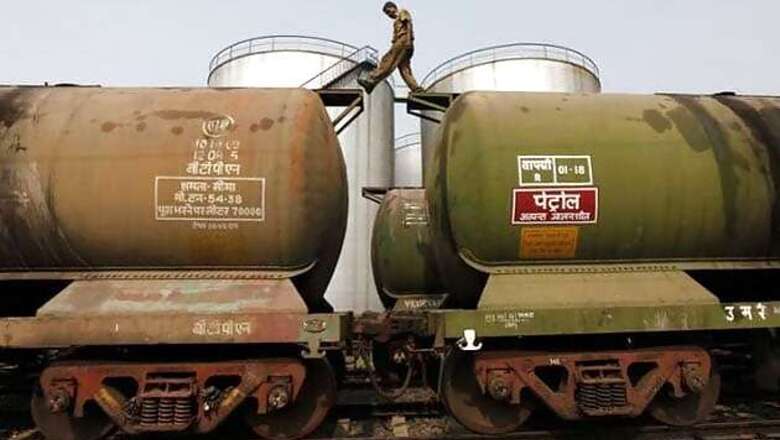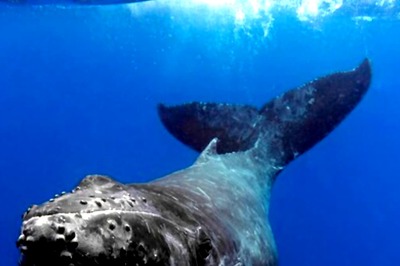
views
Indian businessman Pankaj Bansal is losing sleep. He says that any nuclear deal under which global powers lift sanctions against Iran could wipe him out.
"I have been forced to take sleeping pills now to avoid nightmares as my business with Iran has drastically come down," said Bansal, 43, from his base in a teeming commercial district of south Delhi.
Bansal's trading firm, TMA International, has expanded from metals into motors, auto parts and chemicals as rivals were shut out of Iran by Western sanctions aimed at forcing Tehran into a nuclear compromise. Talks to finalise a deal have run deep into overtime but may wrap up on Friday.
He is one of thousands of exporters who enjoyed a three-year run because India did not back the sanctions. In that time, India's exports to Iran doubled to $5 billion, helping to halve its bilateral trade deficit.
Now, they could be forced aside by European and U.S. competitors just as Asia's third-largest economy reels from a 20 percent export slump prompted by a global slowdown in trade.
The revival of India's historic friendship with Iran, shared with Russia and Venezuela, does hold the promise of long-term trade gains. Yet short-term pain looms for oil buyers and banks that benefited from sanctions-related payment delays.
HELPING HAND
A delegation of Indian exporters met Finance Minister Arun Jaitley last week to lobby for support to help them cope with a revival of competition for the Iranian market. They came away empty handed.
"The lifting of Western sanctions on Iran would have an adverse impact, particularly on non-agricultural commodities," said S.C. Ralhan, president of the Federation of Indian Export Organisations (FIEO).
Yet millions of farmers too would face a hit from the easing of sanctions on Iran, a buyer of basmati rice, soymeal, sugar, barley and meat. Under sanctions, Iran paid a premium of up to 20 percent over global prices to buy from India.
"Iran is shifting to other suppliers like South American countries. They are supplying at much lower prices compared to India. We cannot compete," said B.V. Mehta, executive director at the Solvent Extractors' Association of India.
EUROPE'S EDGE
Indian exporters say firms from Germany, Italy and France that once dominated in Iran will be back selling consumer products ranging from clothing to cars, and pitching for big-ticket contracts like the delayed Tehran metro.
"Traditionally, Iranians have a liking for European products. With the weakening of the euro, it will not be easy for us to compete," said Rafeeq Ahmed, a Chennai-based exporter who used to head the Indian export federation.
India's oil ministry fears that Iran could award the right to develop the giant Farzad B gas field to Europeans who can deploy the latest technology and commit billions of dollars to modernising the OPEC member state's oil-and-gas infrastructure.
"So far they have not said 'no' to granting development rights of Farzad B field to ONGC," said an oil ministry official, referring to state-controlled Oil and Natural Gas Corp (ONGC.NS). "But there is no 'yes' also."
Refiners in India, the world's No.4 oil consumer and Iran's top client after China, want Iran to sweeten terms on crude deals to boost imports, which fell by 23 percent over January-June.
With the fall in crude oil prices and decline in volumes, total imports from Iran have fallen from a record $13.8 billion in 2011/12 to $9 billion in 2014/15. Exports peaked at $5 billion in 2013/14 before falling back last year.
Oil buyers have been ordered to raise $6.5 billion in hard currency to settle oil dues that they have been unable to pay due to the sanctions.
State-controlled UCO Bank holds $2.8 billion in Iranian oil money, interest free, that would be unlocked by the lifting of sanctions, forcing up funding costs.
STRATEGIC TIES
Trade ministry officials say that the economic boost to Iran from the lifting of sanctions could offer opportunities for Indian pharmaceutical, IT and commodity firms.
In May, for example, the two countries signed a deal to develop the Iranian port of Chabahar, on the Gulf of Oman, that would open up a new trade route to Central Asia.
"We may lose some engineering exports, but new opportunities could come up for products currently covered under sanctions," said an official. Some officials favour extending soft loans to exporters and lobbying for infrastructure deals.
That will be no substitute for beating the competition, said Rumel Dahiya, head of the Institute for Defence studies and Analyses in New Delhi: "Nobody can hope for a business deal on concessional terms," he said.




















Comments
0 comment